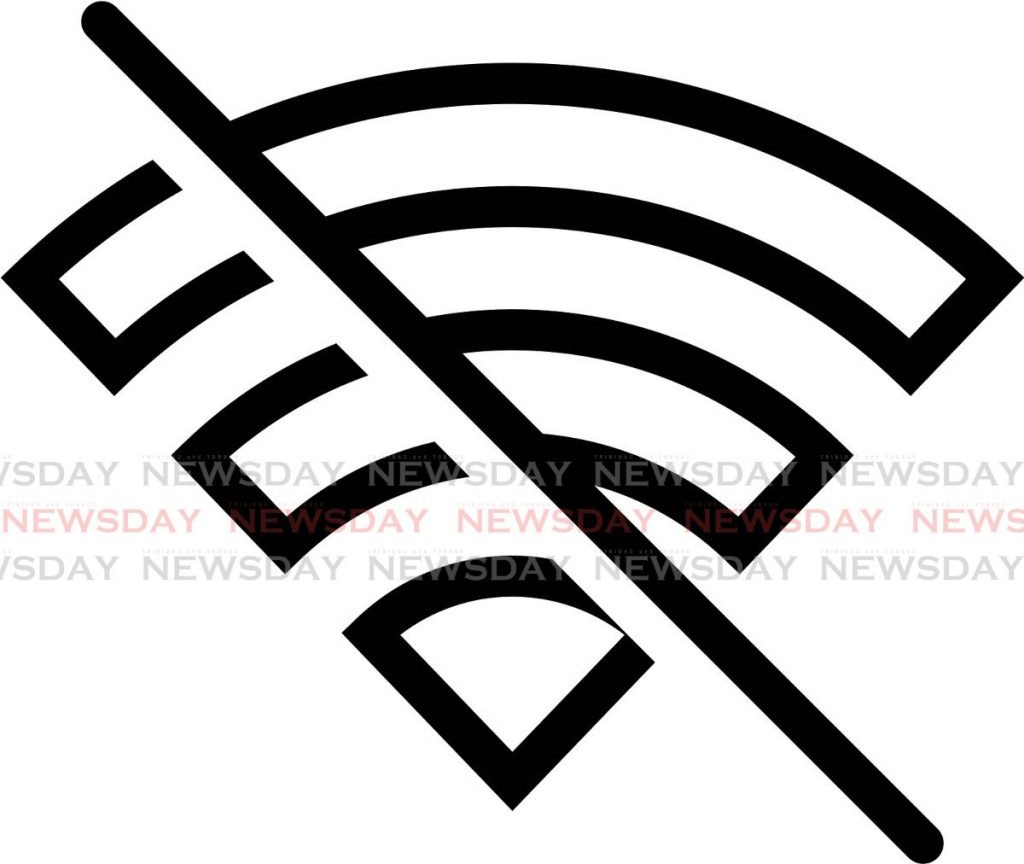Coronavirus puts spotlight on digital divide

KERRY PETERS
If you think the stay-at-home order is difficult, imagine being stuck at home without access to the internet.
That’s the reality for thousands of TT citizens who lack access to high speed internet in light of the public health crisis that is covid19.
These digital have-nots aren’t just denied the privilege of bingeing on Netflix. Many have invariably been excluded from a critically important stream of public health information and other necessities of connected life during the coronavirus pandemic.
Without access to the internet, they can only dream about something as rudimentary as working from home or homeschooling their children.
Both the Ministry of Public Administration and the Telecommunications Authority (TATT) say they are working to address the problem but success has been slow in coming and the coronavirus has created unprecedented challenges.
An inter-agency effort two weeks ago resulted in the award of additional capacity – known in the industry as spectrum – to service providers like TSTT, Flow and Digicel, who announced a number of upgrades for customers including free data and zero-rated websites.
But the freebies have done little to close the internet access gap.
To make matters worse, the national ICT plan where the inter-agency effort to close the digital divide is supposed to be most concentrated, has been hard hit by funding shortages in the Ministry of Public Administration.
“In my view we haven’t got to where we should have got to by this point,” said Minister of Public Administration Allyson West when asked how much progress had been made on the national ICT plan which expires in 2022.

TATT’s own figures help to put the problem in perspective.
By the end of September last year, TATT reported that the number of mobile handsets in the country used only for basic calls continue to soar with a penetration rate of 155 percent.
Yet just 49 per cent of these mobile users have an internet data plan, a four per cent growth over 2018.
Meanwhile, the fixed internet penetration rate for the same period showed some 20 per cent of households – CSO data puts total households at approximately 401,000 – remain without service.
West said getting those people online was her priority for 2020.
And then covid19 struck.
Now West is admitting she is challenged to even keep the people who have always had access to the internet online because service providers can still terminate service for non-payment during the coronavirus lockdown.
“I have spoken to them about that. The people who are challenged financially in this period, who have to make a choice as to where they can spend, will need the assurance that while their five children are home they will not be disconnected,” she said.
Yet despite a number of upgrades and offers of limited service from the internet service providers that benefited from TATT’s allocation of additional spectrum at no charge, neither TSTT, Digicel nor Flow – the industry’s largest firms – has announced any measures that guarantee full service to customers affected financially by the coronavirus.
With banks and insurance companies offering such guarantees to customers facing financial hardship, West said she was hopeful the internet companies would follow suit.
“I have asked them to make the commitment so people can afford to focus on food and rent and those basic things,” she said.
TATT’s acting CEO Cynthia Reddock-Downes said her organisation was also working to get service providers to guarantee service during covid19 and more broadly, to bring more people online for the first time.
Along those lines, Reddock-Downes said TATT would leverage its universal service fund, which it had already tapped for a number of projects, including one to provide subsidised mobile phones to people with disabilities.
Part of an official government policy called the universal service framework, the fund arose out of a need to provide the entire TT population with universal access to basic telecommunications services either on an individual or shared basis.
“This is within TATT’s remit,” said Reddock-Downes, “and under the universal service regulations and universal service policy we are required to ensure service for vulnerable groups.”
The universal service fund is largely made up of TATT surpluses and, since 2015, payments from internet service providers themselves.
Valued at an estimated $124 million, it could potentially provide the Government with a portion of the money it needs to both meet its ICT goals and cater to large segments of the population who remain disconnected from the web.
Covid19 has presented a good case for doing just that.
Economic relief measures announced by the Prime Minister and Minister of Finance to mitigate the financial impact of virus did not include any funding for internet access.
And among the bevy of grants available to the poor and vulnerable at the Ministry of Social Development, none directly provides cash for Wi-Fi hot-spot devices, laptops, mobile phones, or subsidised data plans.
“I don’t know that there is contemplation of a grant,” said West. “There is contemplation of building out infrastructure to allow for universal access but I am not aware of a grant ever being contemplated.”
Along those lines, West said she had spoken to TATT about tapping the universal service fund.
“I have said to them we need to start directing this money to the people who need it.”

Comments
"Coronavirus puts spotlight on digital divide"